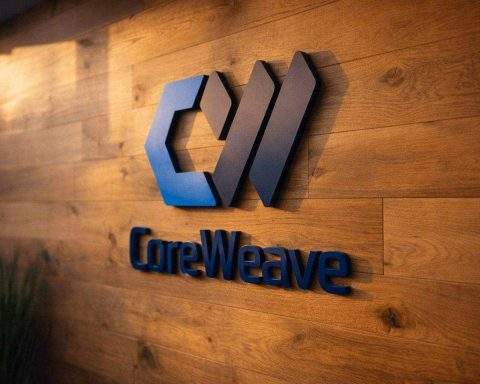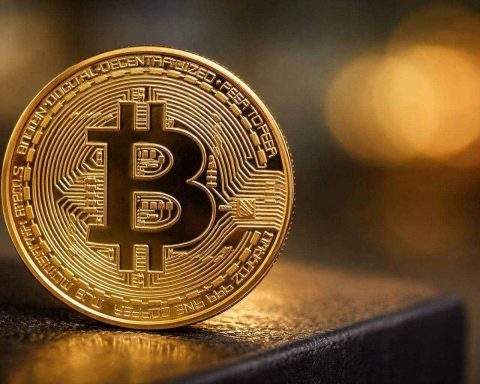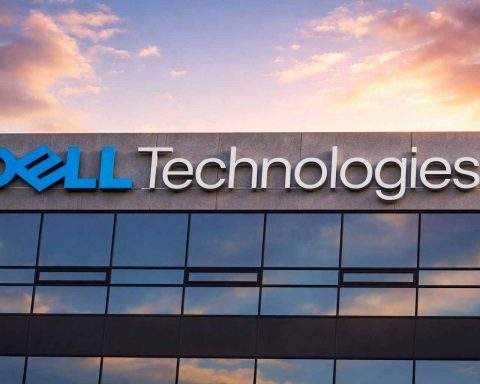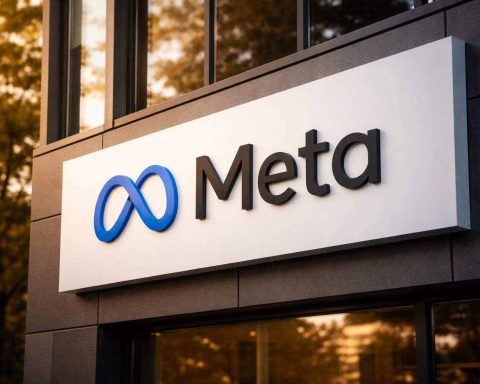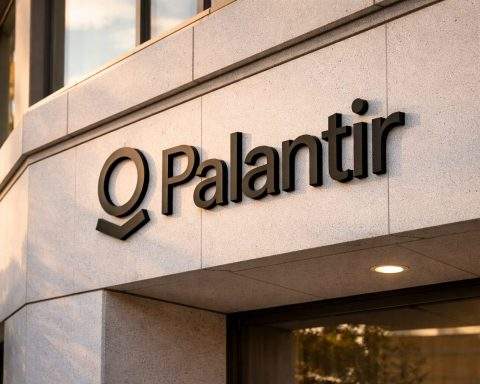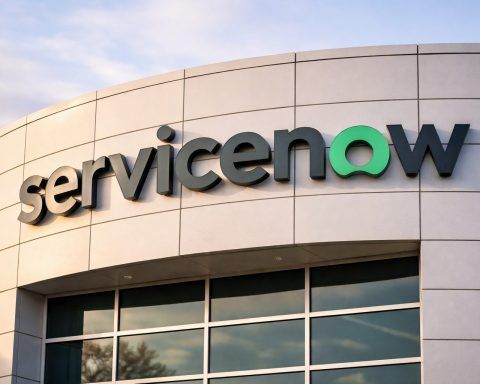- Nintendo raised the US price of the original Switch from $299.99 to $339.99, with the Switch OLED up $50 and the Switch Lite up $30 in August 2025 amid tariff pressures.
- President Trump signed an executive order imposing reciprocal tariffs, including 20% on electronics from Vietnam and 15% on Japanese electronics, pushing consumer tech prices higher.
- Amphenol is in advanced talks to acquire CommScope’s broadband connectivity and cable division for about $10 billion, including debt.
- China Mobile increased its stake in HKBN to about 30% by purchasing 14.4% more for HK$1.08 billion (roughly $138 million), nearly doubling its holding.
- SonicWall SSL VPNs were found vulnerable to a zero-day exploited by the Akira ransomware, prompting warnings to disable VPNs until patches are available.
- Taiwan launched a global talent hunt to ease the chip labor crunch, including Synopsys’ summer Chip Camp in Hsinchu and English-language semiconductor degrees at NTU.
- Blue Origin completed its sixth crewed flight of 2025 with six space tourists on New Shepard NS-34, lifting off at 7:30 a.m. ET and landing safely after about 10 minutes.
- VinFast opened a $500 million EV plant in Tamil Nadu, India, initially producing 50,000 electric vehicles per year with capacity to reach 150,000 and creating over 3,000 local jobs.
- FTC Chair Lina Khan praised Figma’s IPO, which valued the company at about $68 billion on its first day, following the blocked $20 billion Adobe bid.
- Fujifilm raised camera prices by hundreds of dollars, with Canon signaling it may follow due to tariff-driven costs.
Consumer Electronics
August 3, 2025 – Nintendo Hikes Switch Prices Amid Tariff Pressures
Nintendo raises console prices in the US: Nintendo quietly increased the price of its original Switch console from $299.99 to $339.99 – the first such hike since the Switch’s 2017 launch theverge.com. The Switch OLED and Switch Lite models jumped by $50 and $30 respectively theverge.com. Nintendo said the move was “based on market conditions,” coming just after similar price raises in Canada and a new wave of U.S. import tariffs theverge.com. In fact, President Donald Trump signed an executive order days earlier imposing new “reciprocal” tariffs – including a 20% levy on electronics from Vietnam, where Nintendo produces most Switch units theverge.com. The tariff squeeze is also hitting other gadgets: Fujifilm recently jacked up camera prices by hundreds of dollars, with Canon signaling it may follow theverge.com. Analysts warn these protectionist policies could continue to drive up consumer tech prices through the fall theverge.com.
Enterprise & Telecom Tech
August 3, 2025 – Amphenol Nears $10 B Deal for CommScope’s Broadband Unit
Major telecom acquisition on deck: Connecticut-based Amphenol is in advanced talks to acquire CommScope’s broadband connectivity and cable division in a deal reportedly worth about $10 billion (including debt) telecom.economictimes.indiatimes.com. The Wall Street Journal broke word of the negotiations on Sunday, suggesting the transaction could be finalized as soon as Monday barring any last-minute snags telecom.economictimes.indiatimes.com. The CommScope unit – its largest by sales and income – makes infrastructure for broadband and cellular networks telecom.economictimes.indiatimes.com. This would mark Amphenol’s second big bite of CommScope: last year it bought CommScope’s outdoor wireless and antenna businesses for $2.1 billion telecom.economictimes.indiatimes.com. Industry watchers say the move reflects booming demand for network gear as carriers expand fiber and 5G, and could position Amphenol as a dominant supplier in the telecom infrastructure space. (Neither company has publicly confirmed the report yet, and Reuters notes both declined comment so far telecom.economictimes.indiatimes.com.)
August 4, 2025 – China Mobile Boosts Stake in Hong Kong Broadband Provider
China Mobile inches toward HKBN takeover:China Mobile, the world’s largest wireless carrier, announced it has acquired an additional 14.4% stake in Hong Kong broadband operator HKBN for HK$1.08 billion (≈$138 million) reuters.com. The purchase nearly doubles China Mobile’s total holding to about 30% of HKBN reuters.com. China Mobile’s Hong Kong unit bought 213.6 million HKBN shares from a private investor group, which virtually exits its position (down from 15.5% to just 1%) reuters.com. Notably, China Mobile had first expressed interest in acquiring HKBN two years ago reuters.com. While this deal stops short of a full takeover, it tightens China Mobile’s grip on one of Hong Kong’s largest telecom operators. Analysts say it could be a strategic step toward eventually folding HKBN into China Mobile’s empire – aligning with Beijing’s push to consolidate tech assets. For now, HKBN continues to operate independently, and there’s no official word on further acquisition plans.
Cybersecurity
August 3, 2025 – Hackers Exploit Likely Zero‑Day in SonicWall VPNs
Ransomware hits enterprise VPNs: Cybersecurity researchers are warning of an alarming new attack vector targeting corporate VPN appliances. According to Arctic Wolf Labs, the Akira ransomware gang is breaching organizations via SonicWall SSL VPN devices – even those fully patched with multi-factor authentication – suggesting a zero-day vulnerability in the VPN software securityaffairs.com securityaffairs.com. Multiple intrusions in late July showed threat actors accessing SonicWall VPNs and swiftly deploying ransomware. “Available evidence points to the existence of a zero-day vulnerability,” the Arctic Wolf report noted, as some victims were compromised despite strong passwords and TOTP-based 2FA securityaffairs.com. In response, researchers advise companies to disable SonicWall VPN services until a patch is available securityaffairs.com. SonicWall says it’s investigating and urged users to enable all security services and rigorously restrict VPN access. Expert take: “This looks serious – a VPN exploit that bypasses authentication is basically an open door for ransomware,” commented an analyst at Krebs Stamos Group, adding that firms using SonicWall must be on high alert until the flaw is fixed. (So far, there’s no evidence of data theft, but the pace of the attacks has surged since mid-July securityaffairs.com.)
Semiconductors
August 4, 2025 – Taiwan Launches Global Talent Hunt to Ease Chip Labor Crunch
Filling the silicon skills gap: Facing a looming talent shortage in its semiconductor industry, Taiwan is rolling out innovative programs to groom the next generation of chip engineers reuters.com reuters.com. This week, Reuters highlighted a summer “Chip Camp” organized by U.S. design firm Synopsys in Hsinchu, where teens from eight countries donned bunny suits to tour cutting-edge chip fabs reuters.com. It’s part of a broader push as Taiwan confronts a fast-declining birthrate and surging global demand for chips. “Growth in Taiwan’s semiconductor industry has been quite rapid, faster than what our schools can produce in terms of engineering talent each year,” said Leuh Fang, chairman of Vanguard International Semiconductor reuters.com. To attract overseas students, top universities like NTU have launched English-language semiconductor degrees, and TSMC is even backing exchange programs to train German engineers in Taipei reuters.com. Initiatives are targeting kids as young as 10 with chip science video games and interactive lessons reuters.com. Synopsys Taiwan chairman Robert Li stressed the urgency: “There is an urgent need to strengthen STEM education from an early age… we must act here first” given the demographic headwinds reuters.com. These efforts, officials hope, will nurture the “future workforce” to keep Taiwan’s chip powerhouse humming reuters.com.
Telecommunications
August 4, 2025 – Blue Origin Launches Six Tourists to Space in Sixth Flight of 2025
Space tourism keeps soaring:Blue Origin successfully completed a suborbital launch from its West Texas site, sending a private crew of six passengers past the edge of space early Monday space.com. The mission (New Shepard NS-34) lifted off at 7:30 a.m. ET and marked Blue Origin’s sixth crewed flight this year – and 14th overall since inaugurating commercial service space.com. The identities of this flight’s space tourists haven’t been widely publicized, but past New Shepard manifests have included everyone from high-paying customers to contest winners. After a 10-minute journey that gave the civilian crew a few minutes of weightlessness 100 km above Earth, the booster and capsule landed safely back in the desert. Blue Origin’s cadence of launches is accelerating, highlighting the growing demand for space tourism. Industry experts note that with Virgin Galactic also flying customers and SpaceX planning private orbital trips, commercial space travel is moving from novelty toward mainstream. (Tickets for Blue Origin flights have been estimated in the $1–2 million range, though exact pricing remains secret.) The company says it aims to increase launch frequency further in 2026 to meet its extensive waitlist.
Automotive Tech
August 4, 2025 – VinFast Opens EV Plant in India to Supercharge Asian Expansion
Vietnam’s EV champion bets big on India: Emerging electric automaker VinFast officially inaugurated a new $500 million EV factory in Tamil Nadu, India, kicking off a bold expansion beyond its home market wsls.com. The sprawling plant in Thoothukudi will initially produce 50,000 electric vehicles per year, with capacity to triple to 150,000 units, and is expected to create over 3,000 local jobs wsls.com. It’s part of VinFast’s planned $2 billion investment in India – now the world’s third-largest auto market – and positions the facility as an export hub for South Asia, the Middle East and Africa wsls.com wsls.com. “This investment will lead to an entirely new industrial cluster … what India needs to emerge as a global manufacturing hub,” said T. R. B. Raaja, Tamil Nadu’s industries minister, at the opening ceremony wsls.com. VinFast’s strategic pivot to Asia comes after a lukewarm U.S./EU rollout, and it mirrors moves by Tesla and others eyeing India’s nascent EV sector. The company’s sales have been growing rapidly (nearly 97,000 vehicles in 2024, triple the prior year wsls.com) but mostly in Vietnam. By planting roots in India – a market “no automaker in the world can ignore,” as auto analyst Ishan Raghav put it – VinFast hopes to ride a wave of government EV incentives and soaring demand for cleaner transport wsls.com. Local experts note that while EVs still account for under 3% of India’s car sales, that number is climbing fast, and VinFast is now well-positioned to compete in the coming electric surge.
Tech Policy & Regulation
August 2, 2025 – Lina Khan Claims Victory in Figma IPO as Antitrust Vindication
Blocked merger leads to blockbuster IPO: A surprise cheerleader emerged for design software maker Figma’s spectacular IPO last week – none other than Lina Khan, the U.S. FTC’s famously Big Tech-skeptical former chair. After Figma’s stock debuted and surged to a $68 billion valuation on its first day businessinsider.com, Khan took to X (Twitter) to applaud the outcome as validation of aggressive antitrust enforcement. “A great reminder that letting startups grow into independently successful businesses, rather than be bought up by existing giants, can generate enormous value,” Khan posted, calling Figma’s public debut “a win for employees, investors, innovation, and the public.” businessinsider.com Two years ago, Adobe’s $20 billion bid to acquire Figma fell apart amid regulatory pressure in the US and Europe. Khan – who led the FTC’s challenge to the deal – is now essentially saying “I told you so,” pointing to Figma thriving on its own. Not everyone agrees: Tech analyst Dan Ives argues Khan is overstating her case. “Figma is a massive success, but it’s because of the company’s innovative growth and not due to the FTC and Khan,” Ives told Business Insider businessinsider.com. Other commentators note that Figma’s windfall indeed shows startups can flourish solo, but caution that one IPO doesn’t settle the broader debate over when tech mergers harm innovation. Still, for Khan – who resigned when the administration changed – Figma’s rise is a high-profile data point bolstering the antitrust movement’s skepticism of Big Tech buyouts techcrunch.com.
August 4, 2025 – Tech Industry Braces for New U.S. Tariffs
Tariff turbulence hits tech: The effects of new American trade tariffs are rippling across the tech sector. On August 1, President Trump signed an order slapping hefty “reciprocal” tariffs on imports from several nations, notably 15% on Japanese electronics and 20% on goods from Vietnam theverge.com. Now, companies are adjusting: Nintendo’s U.S. price hikes (detailed above) and camera makers like Fujifilm and Canon raising prices theverge.com are early signs of the impact on consumer tech. Industry groups warn that supply chains will need re-routing or cost absorption in the coming months. Meanwhile, trading partners are bristling – Japan called the move “deeply regrettable” and is weighing retaliation, according to the Nikkei. Tech manufacturers in Vietnam (from game console assemblers to smartphone suppliers) also face a sudden cost disadvantage entering the U.S. market. Some analysts believe this could accelerate the diversification of electronics manufacturing to tariff-free locales. In the short term, though, American buyers may see higher prices on a wide range of gadgets this holiday season as the tariff costs trickle down theverge.com. “It’s basically a tax on consumers and innovation,” one consumer electronics lobbyist said, urging policymakers to reconsider the approach. So far, the administration is standing firm, arguing the tariffs will pressure trading partners to open their markets and protect U.S. tech jobs – but at the risk of igniting a retaliatory trade spat that could hurt global tech growth.
Sources: Nintendo/Trump tariffs theverge.com theverge.com; Reuters (Amphenol) telecom.economictimes.indiatimes.com telecom.economictimes.indiatimes.com; Reuters (China Mobile) reuters.com; Security Affairs/Arctic Wolf (SonicWall) securityaffairs.com; Reuters (Taiwan chips) reuters.com reuters.com; Space.com (Blue Origin) space.com; AP News (VinFast) wsls.com wsls.com; TechCrunch/Insider (Lina Khan & Figma) businessinsider.com businessinsider.com.

